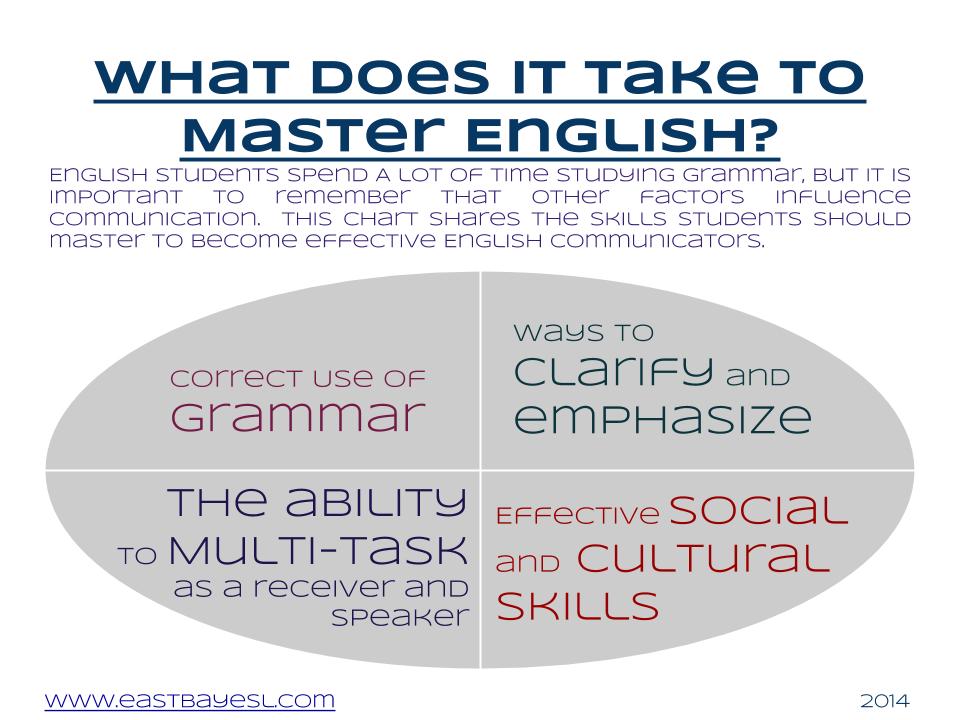|
Last week, we defined social and cultural (or sociolinguistic) language skills. As you remember, these skills help you act appropriately with different people in different situations. You probably also remember that these skills have a lot to do with culture.
So, how do you learn social and cultural skills? Luckily, there are really just two steps to gaining these skills.
Once you have taken some time to do this exercise, let us know what you observed. You can add your thoughts in the comment section.
0 Comments
So, a few weeks ago we published a chart which describes the four main skills that language students need to develop in order to master a language. Hopefully, this graphic reminds you that grammar is only part of the equation and that it is important not to overlook other elements of communication.
In this post, I want to focus on one of those other elements. Namely, let’s talk about social and cultural skills. What are “social and cultural skills”? To help explain, I would like to offer a few examples.
Hopefully, this helps you understand social and cultural skills. Are there any other examples you can think of? Share them in the comment section. Even if you’re not preparing for the TOEFL, TOEFL Cafe can be a great resource. Here are three ways I like to use it with students.
1. Assess Your Speaking Speed. Since TOEFL Cafe has a timer for your response, it can give you a better idea of how quickly you speak. Of course, speed doesn’t necessarily equate to clarity, but it can indicate some other problems, like inadequate vocabulary or pronunciation issues. If you constantly run over the time limit despite having a well-focused response, you might want to think about asking a tutor to help you with intonation because it can help speed up your speaking. 2. Use the Prompts as a Jumping Off Point. Many of the prompts ask questions about your opinions or beliefs. Students can use these questions to design interviews for peers in order to practice their speaking and listening skills. After picking a question they are interested in, students can do research and conduct interviews to assess public opinion on the topic. Once they are done with their research, they can develop it into a presentation. 3. Develop Your Note-taking Skills. How do you organize information into easy-to-read notes? If you take notes, can you understand them the next day? With short listening and reading passages, TOEFL Cafe can be a good tool for practicing note-taking. Some questions, like prompts #3, 5, and 6 are particularly useful because they involve different speakers and sources of information. TOEFL Cafe can help you create a note-taking system to help you in other situations later on. What do you think? How would you use this free resource? In the last blog post, you heard a little bit about TOEFL Cafe. Today, I suggest you try it out. Visit the website and choose a series of questions to answer. Try all six of the speak prompt challenges. When you’re done, come back and share your experience in the comment box below.
The Moth can be a useful resource for students, especially those who live or work in the United States, because it can expose students to regional accents and cultural attitudes of the United States. Here are a few ways I encourage students to use The Moth.
1. Record Unfamiliar Words or Phrases. Since most of the participants in The Moth are native English speakers communicating with other native English speakers, you will hear a wide breadth of words and phrases. Taking notes on new words and looking them up in a dictionary (or, for slang, on urbandictionary.com) can expand your vocabulary and introduce you to words people really use. 2. Create Questions for the Speaker. Even though you can’t speak with them, you can practice your small talk skills by creating imaginary questions for them. In social situations, people often tell stories about their life. If might be difficult for you to come up with questions or related stories on the spot, so you can practice that skill with The Moth. Imagine what questions you could ask to keep the conversation going. 3. Summarize the Story. Summarizing is a skill you can’t practice enough. What was important in the story? What was a turning point? What lesson does the story teach? Don’t repeat phrases directly from the story. Rather, try to paraphrase. Share your summary with another student and see if you agree. All three activities can help you improve your English, but don’t forget to listen to the stories for pleasure as well! |
AuthorEast Bay ESL is an English language school for learners in the San Francisco East Bay. Archives
October 2015
Categories
All
|

 RSS Feed
RSS Feed